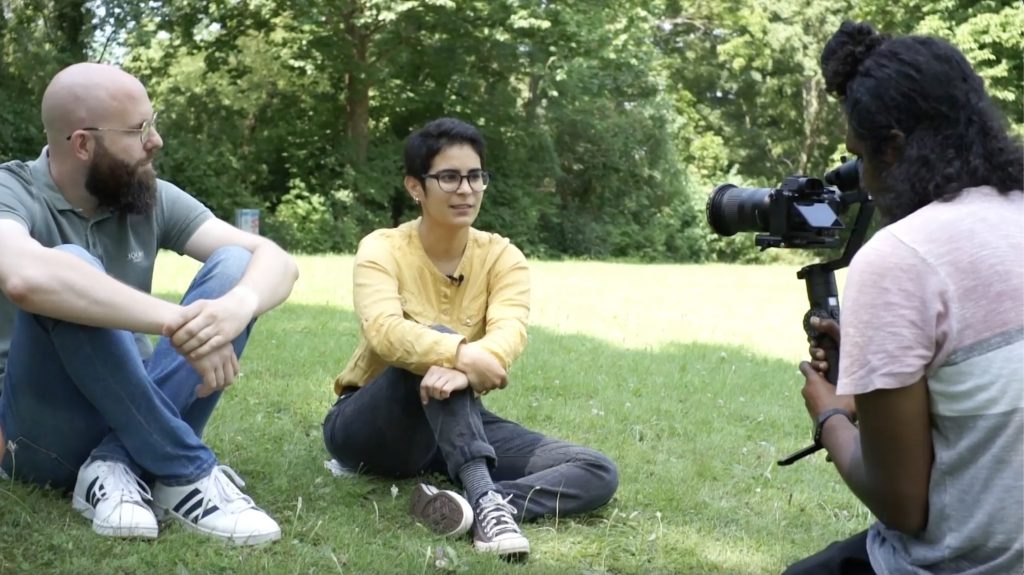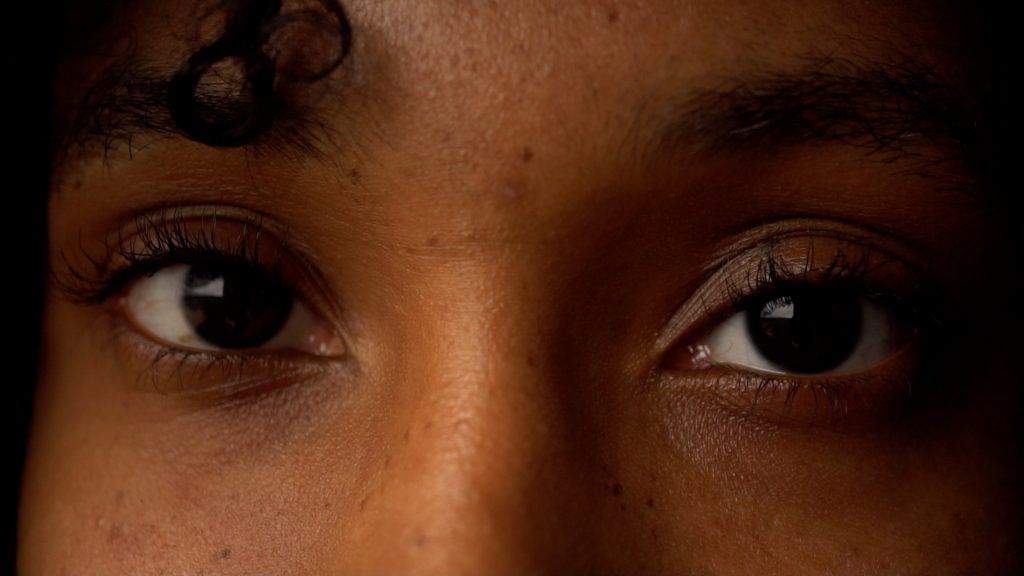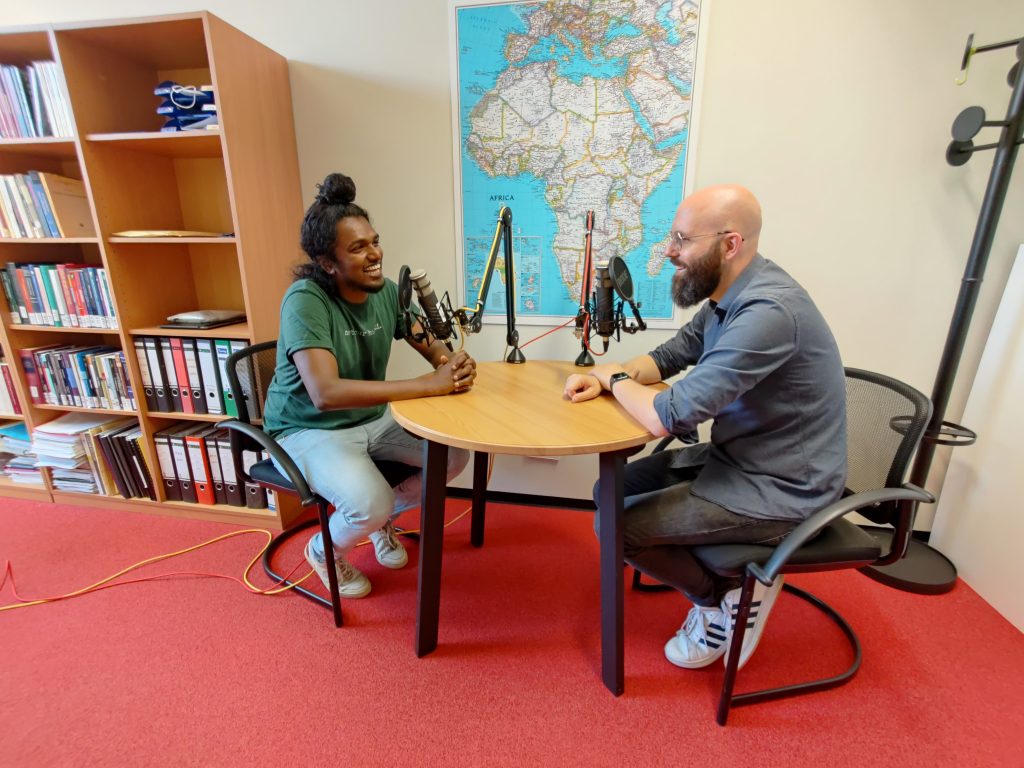As researchers at a Western university, we are working in an environment that is deeply structured by hierarchies, by neoliberal economic logics and an unequal distribution of possibilities. This situation is also a direct result of colonialism and its legacies – a fact that is often overlooked and therefore remains a blind spot in much of Western academia. One of the goals of the Affect and Colonialism Web Lab is to impart a better understanding of how colonialism has shaped and still shapes the institutions we work in – and how this is connected with (and fueled by) certain structures of feeling.
When we speak of decolonization in this context, it is primarily a matter of deconstructing Eurocentric forms of knowledge production (as well as knowledge communication). This entails a critical discourse on academic curricula, but it also means questioning common Western conceptions of knowledge production and knowledge communication in a more general sense. Who, for instance, is recognized as a knowledge producer and who is not? Which forms of communicating research are considered “legitimate” and which are not? Which languages, which formats are generally excluded from Western academic discourse? And how is that connected to a certain politics of affect? By bringing together scholars and practitioners such as activists, artists, curators, and journalists from all over the world who share an interest in the entanglements of affect and colonialism, the Web Lab seeks to critically address these questions. We want to disrupt hierarchies between knowledge producers inside and outside of academia and aim to experiment with alternative forms of knowledge communication that go beyond the standard academic publications such as a peer-reviewed essay, an edited volume, or a monograph.

Instead of unilaterally conveying results to a broader public, we conceive of knowledge communication as interdependent and multidirectional. Our thematic focus on affect and colonialism demands a high awareness of how modes of knowledge production might re-produce existing inequalities. In an effort to avoid such pitfalls, the Web Lab strives to establish long-term and truly dialogic partnerships with diverse knowledge producers from the Global North and the Global South by providing an easily accessible and participatory platform.
Concretely, we invite scholars and practitioners to share their work in the form of short videos or audio files. These can include presentations of their research, interviews and conversations, ethnographic fieldnotes, book reviews, desktop documentaries, personal reflections, video essays, visual poems, recordings of performances, or any other digital format.

Some videos already available on the Web Lab exemplify how this looks like in practice. In his video “Feeling Colonialism Through Maasai Objects”, anthropologist Laibor Kalanga Moko (Berlin/Dodoma) talks about his research on Maasai colonial objects in the Ethnological Museum Berlin. Back at his Maasai community in Tanzania, he recorded their reactions to the footage from the museum’s storerooms, giving viewers a glimpse into how Maasai community members feel about Western institutions taking possession of their cultural heritage. A very different example is the video “Gorée” by the Afro-German artist, curator, and art historian Tanja-Bianca Schmidt (Berlin) who conveys her affective encounter with the island of Gorée in poetic ways. Based on her sound recordings while visiting the island, her experimental video poem makes the Maafa – the abduction of millions of Africans during the slave trade – very tangible. Another video of our current digital fellow Makuxi artist Jaider Esbell (Boa Vista) reflects on ways of “Amplifying Affect in Research and Artistic and Cultural Practices“ in regard to his own work dealing with memory, colonialism, indigeneity, and empathy. In addition, the Affect and Colonialism Podcast showcases longer, in-depth conversations with practitioners and scholars exploring the affective dynamics surrounding topics as varied as the practices of decolonial filmmaking or media strategies in Brazil under Jair Bolsonaro.

The Web Lab wants to contribute to an understanding of knowledge production and knowledge communication that reflects our diverse societies. Contributors can record videos in the language they feel most comfortable with, as we provide subtitles to each contribution, in an effort to bridge language barriers. Videos can be produced with smartphones, digital cameras or simply with a computer webcam. This ensures agile interventions on pressing issues and current debates without requiring special filmmaking skills or professional equipment. Producing videos should be as low-key and low-threshold as possible.

An online platform such as the Web Lab has the potential to build a more global community and help distribute visibility more evenly. At the same time, it must be designed in a way that allows access to its contents despite limited internet bandwidth, a consequence of the current digital divide. The Web Lab seeks to address this through a sleek design that works well on desktop computers and mobile devices. We appreciate suggestions and feedback from people using the site worldwide, so that we can continuously improve its accessibility.
We invite everyone interested in participating to submit videos and to share their work on the Web Lab. Your contributions spark the conversations and collaborations that define this project. Please spread the word and follow us on Facebook and Instagram. We are curious to hear your feedback and to listen to your perspectives.




